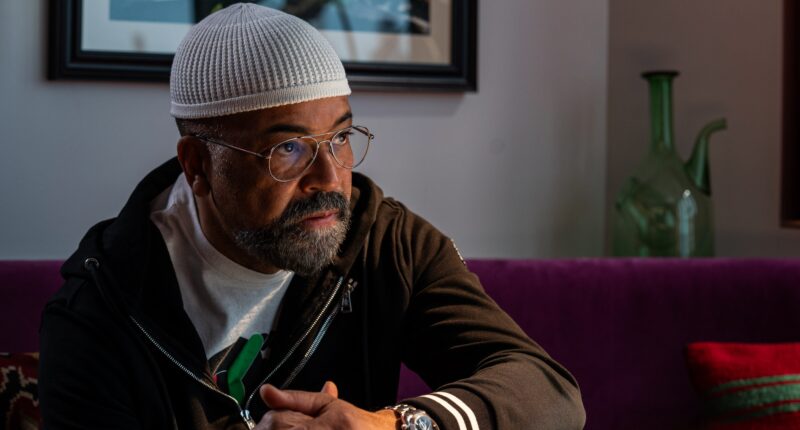“We’ve been talking about it for years, a long time,” Wright says, noting while they met in ’89, they got to know each other better in subsequent years, including after Wright broke through for originating the role of Belize on Broadway in Tony Kushner’s Angels in America. “We had talked about a couple of projects here and there,” Wright says. But it never came together until he received a call that Lee wanted to meet up at the Brooklyn Museum to discuss a new project: an ambitious reimagining of Akira Kurosawa’s High and Low.
“We finally dove into it with this one,” Wright says. “And although I’ve gotten to know him somewhat, to watch Spike work is, in some ways, to really see who he is. Because he is so passionate about film and about filmmaking, and about New York, and that all weaves together. So it was a real insider thrill to get a chance to be on set with him.”
The fruits of that collaboration, Highest 2 Lowest, opens in theaters today courtesy of A24, and ahead of its Apple TV+ premiere on Sept. 5. The film is a sprawling epic about what it means to be moral and true to one’s core values in our ever increasingly transactional society. Hence the dilemma at the center of the film wherein a record company chief famed for his “golden ears”—and appropriately named David King (Denzel Washington)—is confronted with an insidious king’s ransom. On the same morning that David made the business deal that will define his legacy, he is informed that his teenage son Trey (Aubrey Joseph) has been kidnapped.
In point of fact though, the kidnappers have actually mixed up David’s son with Trey’s best friend Kyle (Elijah Wright), who just so happens to be the son of David’s childhood best friend and now lived-in BFF, driver, and confidant, Paul (Wright). How the world, the NYPD, and social media react to a rich man’s son being kidnapped versus that of a Black man who did a stint upstate is uncomfortably timely. But how it also tests David’s own vision of himself, and how his friends and family see him, becomes the real test.
What’s interesting about the story’s central thrust is that despite being primarily based on a 1963 Japanese film from a master filmmaker, it feels decidedly American in 2025—albeit Wright is quick to point out that Kurosawa’s movie, in turn, is based on an Ed McBain novel from 1959.
“[McBain] was a New York writer,” Wright notes, “so in some ways we’re coming full circle.” Yet the appeal to Wright isn’t necessarily so much how Spike Americanizes the tale, but how he finds an accessibility in the melody, even while drastically changing up the notes.







